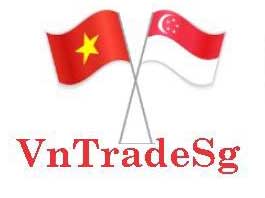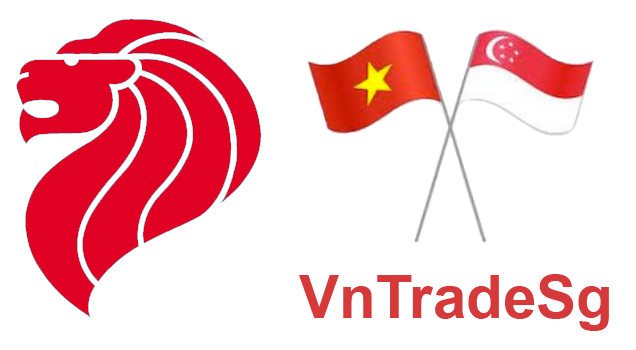| Takeo Nakajima – Chief representative Japan External Trade Organization Hanoi Office
Currently, Japanese businesspeople are refraining from non-urgent business trips within the region. Large events and gatherings may be cancelled or postponed to avoid the spread of the epidemic.
Our organisation is planning to receive many business people and government delegations from Japan in February and March. Therefore, we actively engage in communicating with partners about how to safely handle the events in co-ordination with instructions by the Vietnamese and Japanese authorities.
We do not have any information about shifting investment from Vietnam to other countries because not only Vietnam but Japan and most of the ASEAN members including Thailand and Malaysia are affected by the nCoV at the same magnitude.
We would see even more companies in China accelerate shifting production capabilities to Vietnam.
Containing an epidemic is difficult in an open and globalised society. If a country mishandles the situation, the worst could happen.
In this sense, the Vietnamese government so far has been quick and decisive in introducing strict enforcement measures against the spread.
However, we have seen more negative development among the Japanese business community over the last week, though it is still too early to see real business setbacks caused by the epidemic. China, Vietnam, and Japan are strong trade and investment partners, and any incident like this may cause damage to the free flow of goods, services, and people in this area.
Tourism is one of the hardest-hit industries, and the trade, transportation, and agriculture also could face negative effects of the epidemic.
Meanwhile, healthcare services, hygiene goods manufacturers, and remote digital services may receive more business orders.
Nicolas Audier – Chairman European Chamber of Commerce in Vietnam
The European business community is monitoring the coronavirus carefully and is taking simple, sensible precautions as advised by the World Health Organization (WHO). While the virus is fairly concerning, the number of cases in Vietnam is still low, and we have not seen a knock-on effect on European business sentiment in Vietnam. EuroCham has shared the advice of the WHO with its membership to ensure all European enterprises and their employees understand the simple steps to prevent the spread of germs
The next stage for the EU-Vietnam Free Trade Agreement (EVFTA) will be up for a vote next week, and Members of the European Parliament (MEPs) will decide whether or not to ratify the deal.
We are hopeful to see a positive outcome. A delegation of our chamber has been in Brussels for nearly a month, attending various meetings before and after the vote of the European Parliament’s Committee on International Trade where the EVFTA hopefully overcomes its penultimate hurdle. The delegation will also travel to Strasbourg next week for this final step, to meet with MEPs ahead of the vote and urge them to ratify this historic FTA. Our chamber has supported the EVFTA ever since negotiations first began, and has promoted this deal in Europe and throughout Vietnam.
In our view, the coronavirus outbreak will have no effect at all on the outcome of the vote. While the economic benefits of the EVFTA are undisputed, we know that some MEPs have reservations around areas such as social and labour rights.
We hope to persuade them that the EVFTA will accelerate Vietnam’s progress in these areas, and urge them to vote convincingly in favour of the deal to recognise Vietnam’s strong record of reforms over the last few decades.
Adam Sitkoff – Executive director American Chamber of Commerce Hanoi
The ongoing virus outbreak in China has led to the largest quarantine in human history. This is an evolving situation, and additional time is needed to adequately assess the threat.
This could go either way – turning out to be a lot of mild infections that don’t require much medical attention, or it could turn out to be a very serious problem.
For the economy – both here in Vietnam and around the region – this is already a serious problem which goes far beyond the immediately vulnerable travel and tourism sectors.
Travel and supply chain disruptions will impact many business sectors. The ripple effects of the outbreak will cause changes in employment, wages, consumer confidence, and even monetary policy.
Businesses are working hard to mitigate the negative effects of the virus outbreak, but we are still in the early days of this unfortunate situation.
I have not seen any shifts in investment to other countries. The epidemic is a serious concern to many US investors, and is affecting travel, events, and life around the world. However, it is not a problem that is specific to Vietnam.
This is a worldwide problem. The global business community is watching closely to see how things will turn out.
The best thing for Vietnam to do is to take this public health issue seriously, act transparently, and continue to take the necessary steps to isolate and prevent widespread transmission of the virus, as well as to remain committed to economic reforms that improve the business climate for investment in Vietnam.
There are already tens of thousands of people infected with the virus as the official number of cases. The main concern is the transmission from person-to-person.
When that occurs in large numbers, the situation becomes more serious and dangerous, especially in places like Vietnam that have weaker healthcare systems.
US companies are prepared to respond quickly to the fast-changing situation, and are focused on maintaining safe workplaces and business operations during this disruption, as well as taking care of their team members and customers.
Again, this is an evolving situation and there is cause for concern.
However, it is important that people act logically, reasonably, and make decisions based on facts and necessity.
Shanmuga Retman – Vice chairman Singaporean Business Association in Vietnam
During this period businesses must focus on their long-term growth plans. The current crisis is only a glitch and we have already faced many challenges within Asia over the recent years. Tourism is bracing itself for possible cancellations of events and tour groups if the situation intensifies in the coming months.
We continue to receive trade facilitation inquiries from across Asia, including from Singaporean clients, for market expansion and acquisition opportunities in Vietnam. We are currently reviewing the establishment of a green bank, an innovation valley, and a greenfield hospital project – all of which are essential infrastructure projects in Vietnam, regardless of the virus outbreak in China.
Singapore’s tourism industry is expected to see a decline in arrivals from China, which make up 20 per cent of the total inbound market. The country continues to look towards Vietnam as an attractive destination and source market for inbound tourism. The launch of the Singapore Vietnam Business Council shows that both countries are deepening their relationships across public and private sectors.
Hong Sun – Vice chairman Korean Chamber of Business in Vietnam
China is Vietnam’s key trading partner. Thus, the epidemic is causing big impacts on Vietnam’s exports to its neighbour, especially in agro-forestry-fishery. Moreover, imports of materials for textile and garments as well as electronic spare parts are also being affected.
Service sectors such as tourism and hospitality are being hit. So far, many South Korean groups have cancelled trips to Vietnam. However, the outbreak does not affect the overall investment sentiment among South Korean businesses in Vietnam.
Despite the serious development of the epidemic, South Korean enterprises will continue their investment plans in Vietnam. They are keeping their eyes open and intensifying protective measures. At the same time, they are seeking to stabilise operations, while continuing to seek new opportunities.
We are hoping that Vietnam will soon halt the outbreak and continue facilitating a business environment that will guarantee rapid socio-economic development. |






















